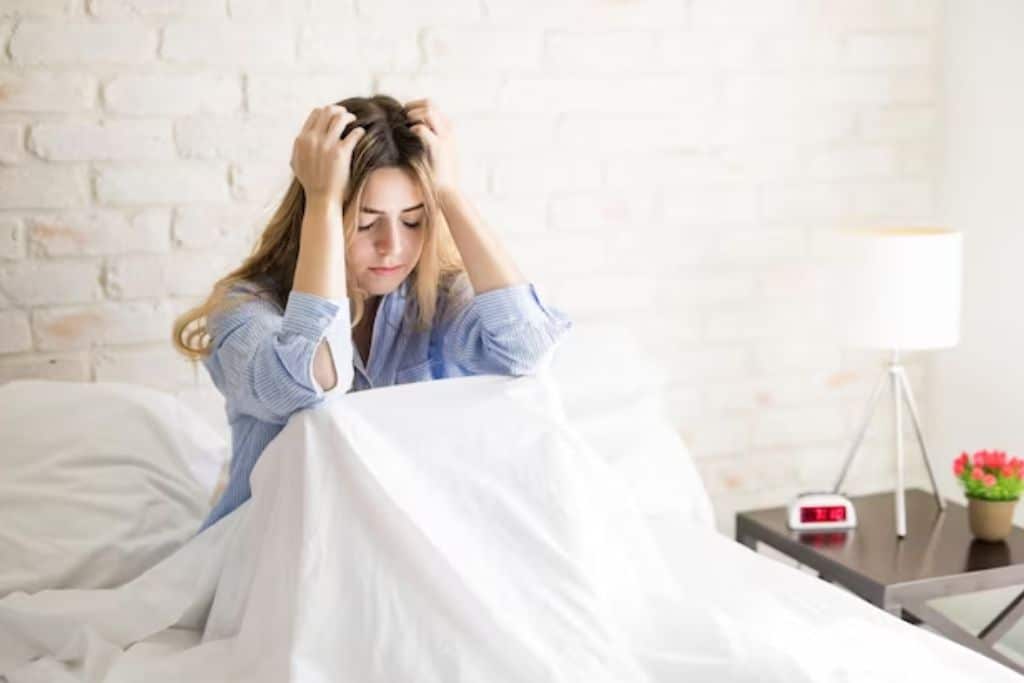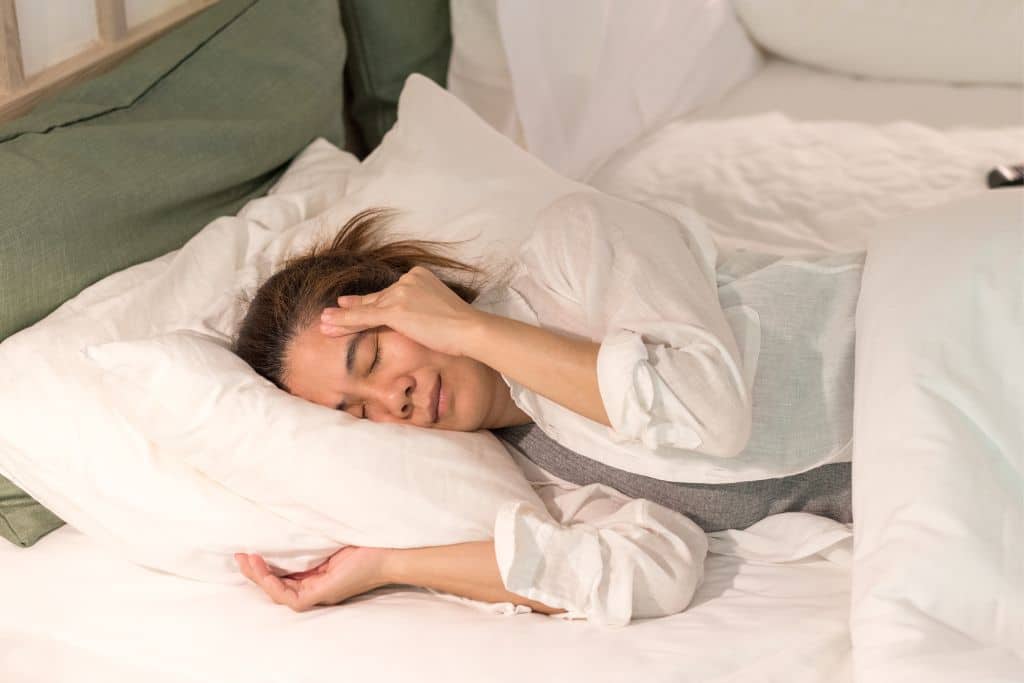How to Beat Morning Anxiety with These Expert Tips
Rise and shine! It’s a brand-new day full of endless possibilities, or is it? If you find yourself waking up with that familiar pit in your stomach, the racing thoughts, and the overwhelming sense of dread, then you may be all too familiar with morning anxiety. Don’t worry; you’re not alone. Many people experience this early morning battle with their minds. But fear not, because we’ve got expert tips to help you conquer those pesky morning jitters and start your day off on the right foot! So grab a cup of coffee (or tea) and let’s dive into how to beat morning anxiety once and for all.
What is morning anxiety?
Morning anxiety is the unwelcome guest that barges into your day, right from the moment you wake up. It’s that overwhelming feeling of unease, restlessness, and worry that can make even the simplest tasks feel like insurmountable challenges. While it shares similarities with general anxiety disorder, morning anxiety specifically refers to those feelings of heightened stress and tension in the early hours.

For some people, morning anxiety may start as soon as they open their eyes, while for others, it gradually builds up over time. The intensity can vary from person to person; for some, it may be mild discomfort; for others, it can be debilitating.
The causes of morning anxiety can differ from individual to individual. It could be triggered by a specific event or situation happening later in the day or simply a result of an overall underlying anxious temperament. Hormonal imbalances and disrupted sleep patterns might also contribute to this phenomenon.
Regardless of its cause or severity level, one thing remains clear: morning anxiety has the potential to cast a dark shadow over your entire day if left unaddressed. But fear not! There are effective strategies available to help you beat morning anxiety head-on and regain control of your mornings once again!
Causes of Morning Anxiety
Many people experience feelings of anxiety upon waking up in the morning. It can be a frustrating and overwhelming way to start your day, but understanding the underlying causes can help you find ways to alleviate this morning’s anxiety.

One possible cause of morning anxiety is an imbalanced sleep-wake cycle. When our bodies don’t get enough restorative sleep or experience insomnia or nightmares, it can cause higher levels of stress and anxiety when we wake up. A lack of quality sleep affects our ability to regulate emotions effectively.
Another potential cause is anticipatory anxiety. This occurs when we anticipate stressful events or tasks that await us during the day ahead. The mere thought of tackling these challenges can trigger anxious thoughts and physical symptoms like increased heart rate and sweating.
Stressors from previous days may also carry over into the next morning, contributing to feelings of anxiety. Unresolved conflicts, work pressures, or personal issues can linger in our minds while we sleep, making it difficult to wake up with a clear mind.
Additionally, hormonal imbalances play a role in triggering morning anxiety for some individuals. Fluctuations in cortisol levels (our body’s stress hormone) throughout the day can affect mood stability and make mornings particularly challenging for those sensitive to these shifts.
Certain lifestyle factors, such as poor nutrition choices or excessive caffeine consumption, could exacerbate feelings of anxiety in the mornings.
By identifying potential causes for your morning anxiety, you’ll be better equipped to explore suitable strategies that address your specific triggers head-on
The Importance of a Routine
When it comes to managing morning anxiety, establishing a routine can be incredibly beneficial. Having a set schedule helps create structure and predictability, which can help alleviate feelings of uncertainty and stress that often contribute to anxiety.

A consistent morning routine provides a sense of control and stability. By knowing what to expect each day, you reduce the chances of feeling overwhelmed or caught off guard by unexpected tasks or events. This can significantly decrease anxiety levels as you start your day on a more positive note.
Moreover, routines promote efficiency and productivity. When you have a well-established routine in place, you eliminate decision-making fatigue by automating certain activities. This frees up mental energy for more important tasks throughout the day.
Additionally, having a routine allows for self-care practices that are essential for managing anxiety. You can incorporate calming activities such as deep breathing exercises, journaling, or enjoying a cup of tea into your mornings without feeling rushed or guilty about taking time for yourself.
Implementing an effective morning routine is key to reducing morning anxiety. It provides structure and decreases uncertainty and overwhelm while promoting efficiency and self-care practices that contribute to overall well-being.
Mindfulness and Meditation Techniques
Mindfulness and meditation techniques can be powerful tools for managing morning anxiety. By focusing on the present moment and cultivating a sense of calm, these practices can help alleviate racing thoughts and promote a sense of clarity.

One effective technique is deep breathing. Taking slow, intentional breaths can activate the body’s relaxation response, calming both the mind and body. Try inhaling deeply through your nose for a count of four, holding for four counts, and exhaling slowly through your mouth for another count of four. Repeat this cycle several times to feel more centered.
Another helpful practice is visualization. Close your eyes and imagine yourself in a peaceful setting—a serene beach or a lush forest, perhaps—allowing your mind to soak in the tranquility of that scene. Engaging with positive mental images can help counteract anxious thoughts.
Body scan meditation is yet another technique that can promote relaxation. Start by bringing attention to each part of your body from head to toe, noticing any areas where tension may be present. With each breath out, imagine releasing that tension and allowing it to melt away.
Incorporating mindfulness into daily activities such as eating breakfast or brushing your teeth is also beneficial. Focus on engaging all five senses during these moments—notice the taste, texture, smell, sound, and visual aspects involved—and allow yourself to fully savor the experience without rushing.
Remember that mindfulness takes practice; don’t get discouraged if you find it challenging at first. Over time, incorporating these techniques into your morning routine will become second nature and contribute to greater overall well-being.
Exercise for Reducing Anxiety
Regular physical activity has been proven to have numerous benefits for both the body and the mind. When it comes to anxiety, exercise can be a powerful tool for reducing symptoms and promoting overall well-being.

Engaging in exercise helps release endorphins, which are natural mood-boosting chemicals in the brain. These endorphins act as natural painkillers and stress relievers, helping to alleviate feelings of anxiety.
Additionally, exercise provides an outlet for pent-up energy that often accompanies anxiety. Physical activity allows individuals to channel their nervous energy into something productive and positive.
Furthermore, participating in regular exercise can improve sleep quality. Adequate rest is essential for managing anxiety levels, as a lack of sleep can exacerbate symptoms.
It’s important to note that you don’t need intense workouts or hours at the gym to reap the benefits of exercise for reducing anxiety. Even simple activities like walking, yoga, or cycling can make a significant difference.
Incorporating regular physical activity into your routine is key. Aim for at least 30 minutes of moderate-intensity exercise most days of the week.
Remember, always consult a healthcare professional before starting any new exercise regimen if you have underlying health conditions or concerns about your fitness level.
By incorporating regular physical activity into your daily routine, you can effectively reduce morning anxiety and improve your overall mental well-being. So put on those workout clothes and get moving! Your mind will thank you.
Planning for a Calmer Morning
Creating a peaceful and stress-free morning starts with planning. By taking some time the night before to prepare, you can set yourself up for success and reduce morning anxiety.
One effective strategy is to lay out your clothes for the next day. This simple act eliminates the scramble of trying to find something suitable in the morning and allows you to start your day feeling put together.

Another helpful tip is to pack your bag or backpack with everything you need for the day ahead. Whether it’s work documents, school supplies, or gym gear, having everything ready to go saves precious time in the morning and minimizes last-minute rushing around.
Preparing breakfast options in advance can also make mornings more relaxed. Preparing overnight oats or prepping ingredients for a smoothie can save you valuable minutes when hunger strikes.
Additionally, creating a schedule or checklist can help keep you organized and on track in the mornings. Knowing exactly what needs to be done and when helps alleviate any feelings of overwhelm or forgetfulness that may contribute to anxiety.
By implementing these planning strategies, you’ll be able to start your mornings calmly and confidently, setting a positive tone for the rest of your day.
Seeking Professional Help
While these tips and techniques can help manage morning anxiety, it’s important to remember that everyone’s experience is unique. If you find that your morning anxiety persists or becomes overwhelming despite your efforts, seeking professional help is crucial.
A mental health professional, such as a therapist or counselor, can provide valuable support and guidance in understanding the root causes of your morning anxiety. They can work with you to develop personalized strategies for managing and overcoming it.

Therapy modalities such as cognitive-behavioral therapy (CBT) have been proven effective in treating anxiety disorders. Through CBT, you can learn new ways of thinking and coping with anxious thoughts and feelings.
Additionally, a psychiatrist might advise medication if it’s necessary to treat severe morning anxiety symptoms. A qualified healthcare provider can assess your specific situation and determine whether medications are appropriate for you.
Remember that there is no shame in seeking professional help for mental health concerns. Just like any other medical condition, anxiety disorders deserve proper attention and treatment from trained professionals who specialize in this field.
You don’t have to face morning anxiety alone; reach out for the support you need!
In conclusion
Morning anxiety can make starting each day feel like an uphill battle. However, by implementing these expert tips into your routine—establishing a consistent schedule, practicing mindfulness techniques like meditation or deep breathing exercises, and incorporating regular exercise into your mornings—you will start gaining control over those anxious emotions.
Please remember the importance of planning ahead: preparing things the night before makes mornings go smoother while reducing stress levels overall.
Lastly, but importantly, seeking professional help should never be overlooked when dealing with persistent or overwhelming morning anxiety symptoms. Mental health professionals are equipped with tools and knowledge to guide you toward relief from this challenging condition!
Remember that each person’s journey with beating morning anxiety will differ slightly; what works for one may not work for another. Be patient with yourself and open to trying different strategies until you find what helps you the most.
So

